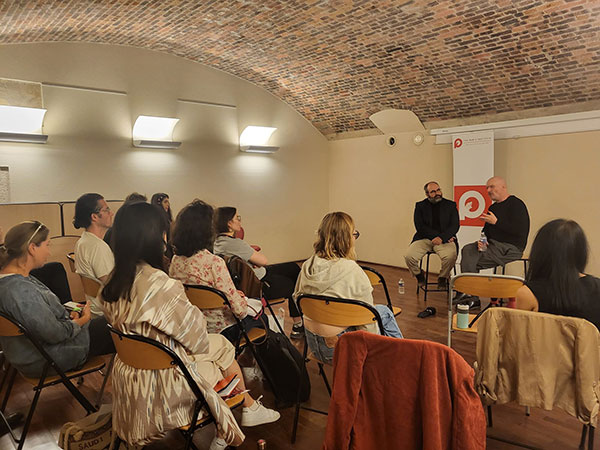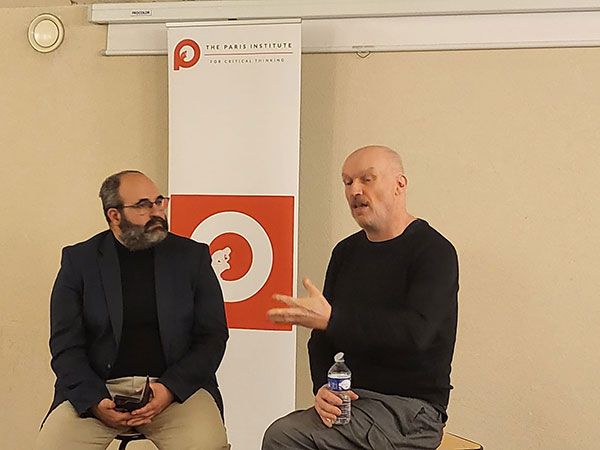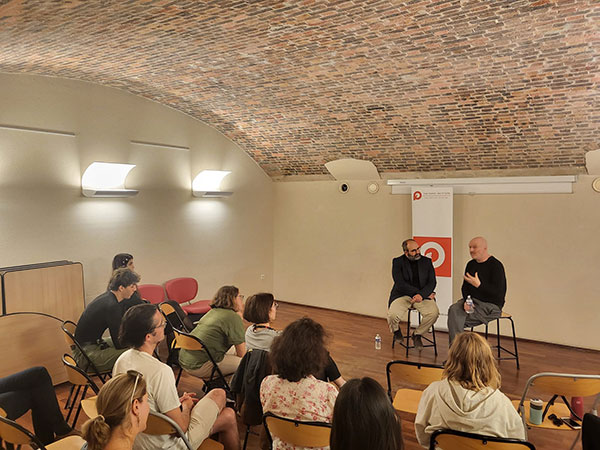PICT Honorary Lectures VII: New Plays on the London Stage: A Conversation with Mark Ravenhill

On 7 October 2023, the Paris Institute for Critical Thinking (PICT) hosted legendary British playwright Mark Ravenhill for the seventh installment of the PICT Honorary Lectures series. Entitled “New Plays on the London Stage: A Conversation with Mark Ravenhill,” the event was moderated by Anton Bonnici (PICT) and hosted by the Mairie de Paris Centre.
An emblematic playwright of the London stage, Ravenhill spoke at length about the history and present of a theatre scene that welcomes around a million viewers per month at hundreds of venues large and small.
Ravenhill devoted much of his reflections to the changes undergone by the London stage since he got his own start in the late 1980s. “We were the very very last breath of people who primarily wrote for theatre,” Ravenhill said of his generation. For younger creatives, he maintained, theatre is just one aspect of a portfolio that also includes TV, streaming, or film. These days, a first play may well serve as a gateway for work in other media, after which a young playwright may not find themselves returning to the theatre again.
Another change highlighted by Ravenhill concerned the social and political preoccupations of playwrights. During his own early years, he stated, mainstream discourse was marked by a certain complacent embrace of neoliberalism and globalization, with Thatcherism having transformed society and ideas such as the “end of history” receiving serious attention and support. Reacting to these tendencies, Ravenhill viewed his generation as “writing into a sort of deadness, complacency, and glossiness.”
In contrast, Ravenhill found, contemporary playwrights are animated by a new political fervor born out of identity politics. “Every generation finds different obsessions,” he stated, holding that “we’re going through the guillotine phase” of identity politics at the moment. However, Ravenhill was far from dismissive of the current trend. “Sometimes it gets a bit dogmatic,” he said, “but you have to pick your way through that, because we’re trying to find a new way of working.”
In this context, Ravenhill was particularly happy to highlight a real diversification of the London stage. At the end of the 1980s, despite much talk about inclusion and diversity, the “standard production was a white man directing a play written by a white man and starring a white man,” he said. In recent years, however, the changes that people had been demanding for 40 years have finally started to materialize, with many more plays involving, say, women or people of color.
We would like to thank Mark Ravenhill for his time, passion, and insights, Anton Bonnici for his excellent questions and moderation, all audience members who enlivened the event with their contributions, and everyone on the PICT team who helped make the afternoon such a success!




Responses